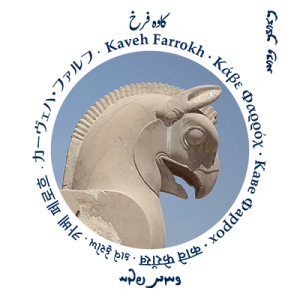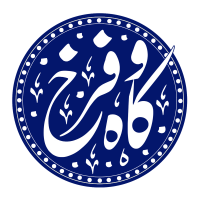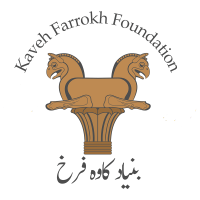These are not leftist or Communist in origin, but are inspired by such writings originating in the 1960s and 1970s (or ealrier). In the quest to address Iran’s social ills, corruption, and inequailities these writers often (apparently) inadvertendly promote views that are anti-Iranian in nature. Like the left/Communist party, the very concept of iran’s past and history are often questioned within the context of promoting equality and justice within Iranian society. This is in practice almost identical to the methods which the Soviets of Moscow and Baku promoted to help extend Soviet imperialism into Iran.
There are a whole cadre of Iranian writers who have adopted the Persophobic narratives of the Communist/leftist movements – interestingly these writers do not appear to have had affiliations with the political left. Evidently they (like Bella Dodd of the CPUSA described earlier) have been taken in by the messages of equaility and social justice, not realizing that the source of those messages have no such altruistic intentions.
It is indeed an enigma why so many Iranian intellectuals harbor such Persophobic views against their own history and culture. One rarely sees for example Greco-phobia among Greek writers, or Roma-phobia among Italian writers, Arabo-phobia among Arabian writers, Indo-phobia among Indian writers, Turco-phobia among Turkish writers or indeed among any other nationalities with long and proud traditions and histories.
Research has yet to be conducted as to why so many highly intelligent and erudite Iranian writers carry such Persophobic attitudes. In asense, this betrays a profound psychologtical process of self-dislike, or a distaste for one’s background and heritage.
Perhaps some of these writers carry a distorted interpretation of Sufism and mystical Persian poetry which preach univeral brotherhood and how the individual person should transcend the concept of tribalistic identity. However neither mytical Persian poetry nor Sufism preach that the individual must be hostile towards his or her national background, nor do they preach Persophobia.
Again, one sees a strange mental correlation in the minds of these “egalitarian” Iranian writers:
Social justice and equaility is equated to Persophobia and the desire to promote inter-ethnic conflict
An interesting Iranian Persophic writer is Mostafa Vaziri who has authored books on Sufism. Vaziri claims that Iran and its entire historical and cultural identity is simply a concoction by “”Western “Oreintalists”. Once again one sees a striking parallel between such claims and the Persophobic efforts of the former Soviet Union and their Romanov predecessors. In one swoop, Vaziri dismisses all of the works and researhc of Iranian Studies scholars such as Edward Browne)، رومن گیرشمن (Roman Ghirshman)، ولادیمیر مینورسکی (Vladimir Minorsky)، ریچارد نلسون فرای (Richard Nelson Frye)، ادموند بوزورث (C.E. Bosworth). Vaziri’s book is entitled:
Title: Iran as Imagined Nation: The Construction of National Identity
Publisher and Date: Marlowe & Company, 1991.
See discussion of Vaziri in Persian:
یکی از این دست نویسندگانی که «ایران» را ساخته و پرداختهی خاورشناسان میداند فردی است به نام «مصطفا وزیری» (گویا متولد ۱۳۳۵ خ/ ۱۹۵۶ م) که کتابی نوشته است با مشخصات زیر: نام کتاب: «ایران ملتی تخیلی: ساخت هویت ملی» (Iran as Imagined Nation: The Construction of National Identity) نویسنده: مصطفا وزیری ناشر: Marlowe & Company صفحه: ۲۴۷ سال انتشار: جولای ۱۹۹۴ م/ تیر ۱۳۷۳ خ در همان سال ۱۳۷۳ خ/۱۹۹۴ چند نقد بر این کتاب نوشته شده از جمله نقدی نوشتهی دکتر محمد توکلی ترقی. در نقد دکتر توکلی آمده است:
وزیری مینویسد «ویروس» باور به دیرینگی ایدهی ایران و «باورهای فاشیستی» مانند آن توسط خاورشناسانی مانند ادوارد براون (Edward Browne)، رومن گیرشمن (Roman Ghirshman)، ولادیمیر مینورسکی (Vladimir Minorsky)، ریچارد نلسون فرای (Richard Nelson Frye)، ادموند بوزورث (C.E. Bosworth) و دیگران در ایران پخش شده است. شاگردان ایرانی آنان نیز مانند سعید نفیسی، علی اکبر دهخدا، جلال همایی، احمد کسروی، عبدالحسین زرینکوب، احسان یارشاطر و دیگران همین ویروس را منتشر کردند!
جالب است که این افراد انگلیسی، فرانسوی، روس، امریکایی و دیگران همه بر یک چیز توافق داشتهاند و آن ایدهی ایران است. در همین زمینه دکتر جلال خالقی مطلق و دکتر جلال متینی هر یک مقالهای نوشتهاند که جواب دندانشکنی به این گونه یاوههاست. این دو مقاله را میتوانید در پایگاه ارزشمند «آذرگشنسپ» بخوانید: – ایران در زمان باستان نوشتهی دکتر خالقی مطلق – ایران در زمان اسلامی نوشتهی دکتر جلال متینی – چند مقالهی دیگر در ادامهی این دو
A very common theme by such writers is that Iran has no real history nor a true collective identity. Note the parallels to the claims of the ex-Tudeh member, Nasser Pourpirar in our discussion earlier regarding the Communist movements.
Note the excerpt below in Persian:
اما یکی از ادعاهای بیپایهی تجزیهطلبان و دشمنان ایران آن است که «ایران» ایدهای است که به دست خاورشناسان پدید آمده است و در دوران پهلوی ترویج شده است. یعنی پیش از سدهی هژده و نوزدهم میلادی / دوازده و سیزده خورشیدی هرگز چیزی به نام «ایران» وجود نداشته و ایرانیان نیز از گذشتهی خود هیچ آگاهی نداشتند. این تجزیهطلبان، با چشم بستن بر تمام کتابهای تاریخی که در دوران اسلامی نوشتهاند مانند تاریخ طبری و آثار الباقیهی ابوریحان بیرونی و مانند آن، تمام تاریخ ایران پیش از اسلام را ساخته و پرداختهی خاورشناسان میدانند. باید از اینان پرسید: اگر چیزی به نام «ایران» وجود نمیداشت، چه طور تمام شاهان این سرزمین در طول تاریخ پس از اسلام، خود را «خسرو ایران» مینامیدند؟ اگر «ایران» چیز ناشناختهای بود، شاه اسماعیل صفوی چه طور میتوانست خود را «شاه ایران» بنامد و نسل خود را به ساسانیان برساند؟ کسانی که به خاطر مخالفت با حکومت پهلوی تاریخ پیشااسلامی را انکار میکنند یا کوچک میشمارند فرقی با کسانی ندارند که به خاطر مخالفت با جمهوری اسلامی، تاریخ پسااسلامی و دستاوردهای ایرانیان در دوران اسلامی را انکار میکنند. باید بیاموزیم که هر دو بخش پیشااسلامی و پسااسلامی پارههایی از تاریخ و هویت و فرهنگ ما ایرانیان هستند و هیج یک به تنهایی کافی نیست
However such Persophobic attitudes are not confined to a fringe of extreme writers. There are now such writers who have risen to very high academic positions within the Western world. One example of this is Professor Hamid Algar of the Department of Near Eastern Studies, University of California, Berkeley. Professor Algar denies that a country called Iran ever existed before the Safavids. Despite such Persophia, Professor Algar has been awarded with a honorary doctorate degree from Iran.

Professor Hamid Algar of University of California, Berkeley denies the existence of Iran before the Safavids.
Despite the expansion of Persophobia in academia, notably in the West, these ‘academics” have been unable to alter the historiography of Iran and have failed completley in influeincing the new generation of Iranian youth (both within Iran and in the West).

Iranian youth bows to the tomb of Cyrus the Great at Pasargadae –پاسارگاد: آرامگاه کوروش بزرگ– -This symbolizes the failure of the Persophobic “educational” programs rooted within the Iranian left and pan-Muslim religious right.



